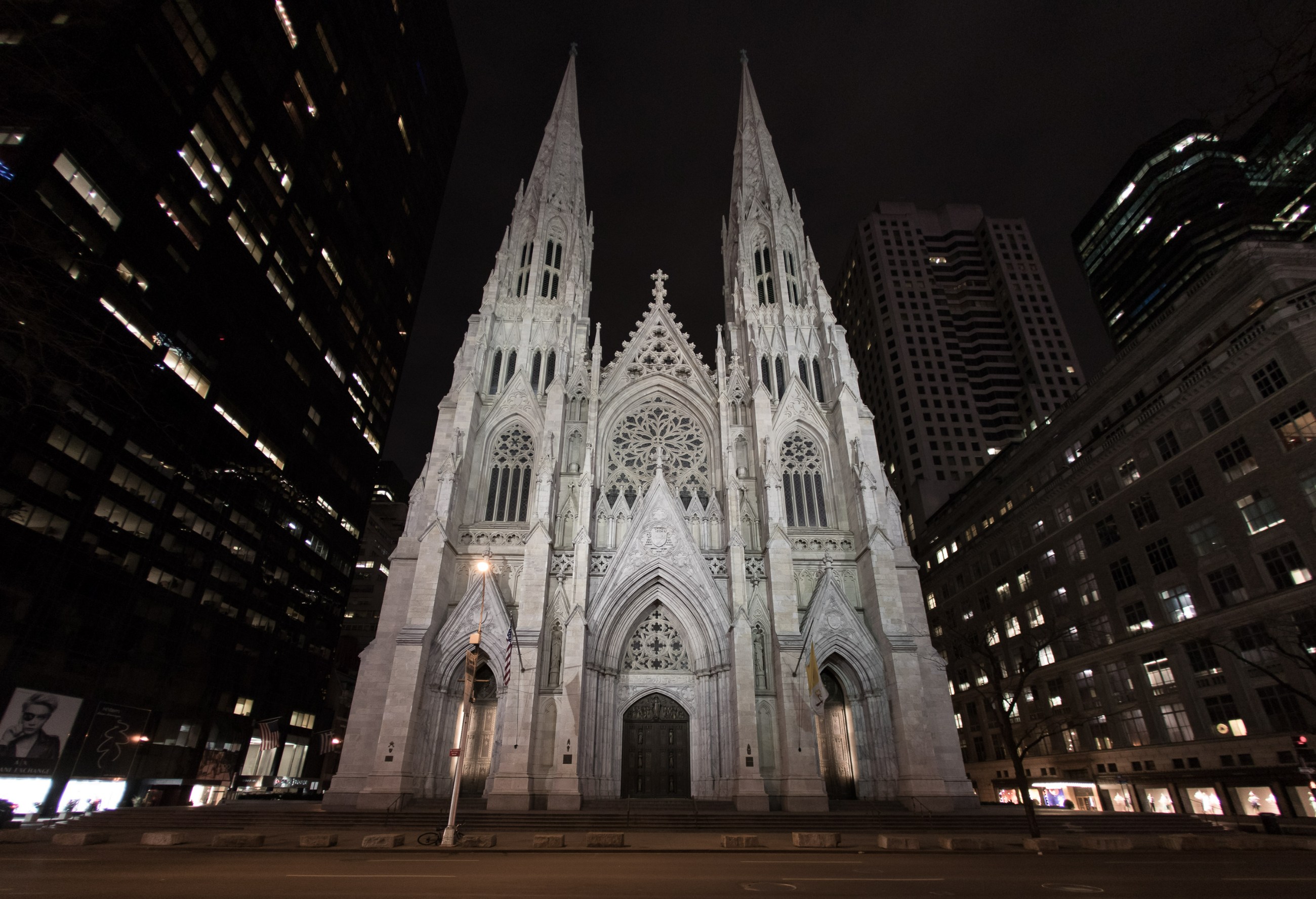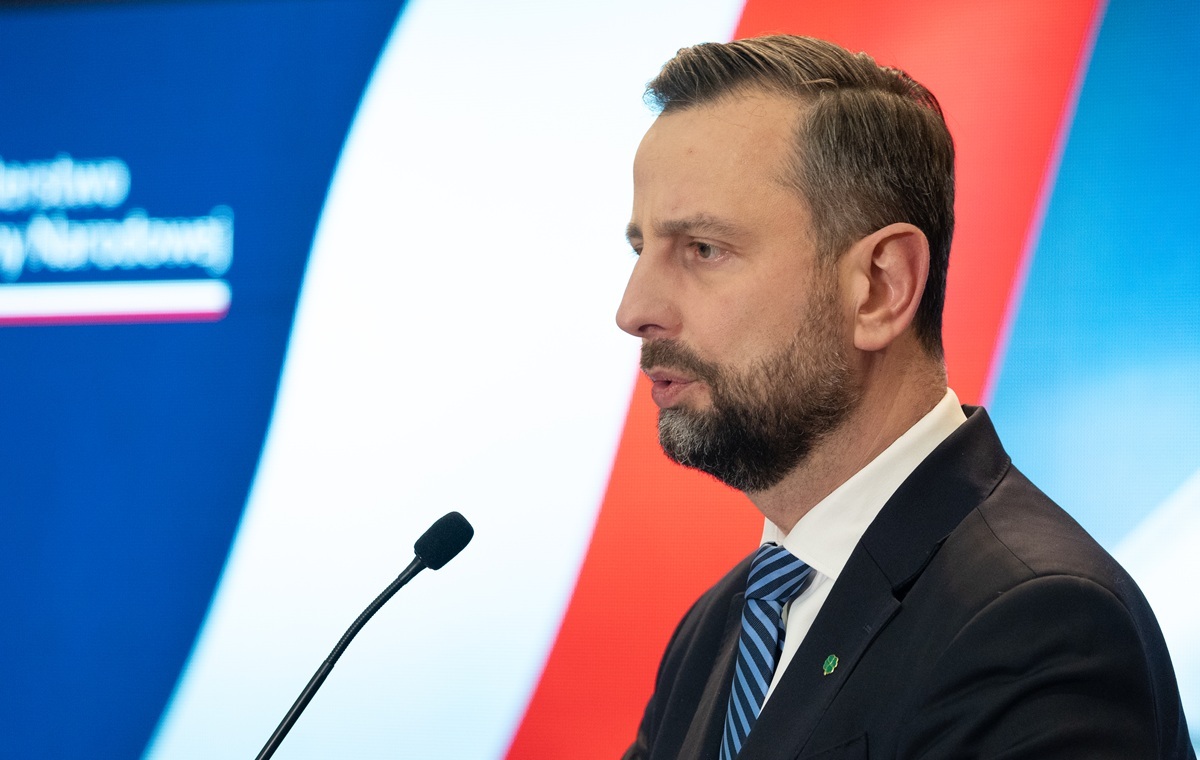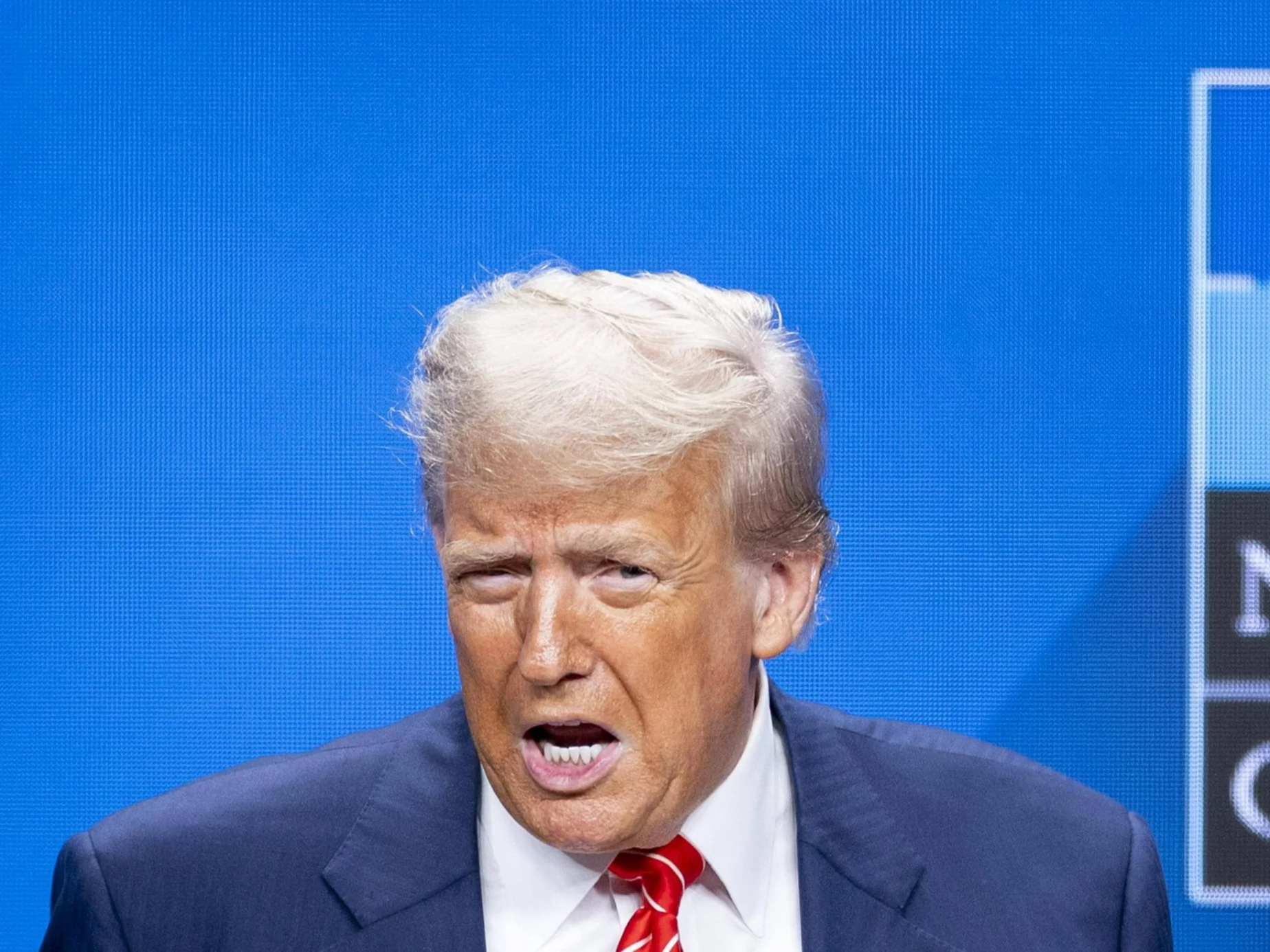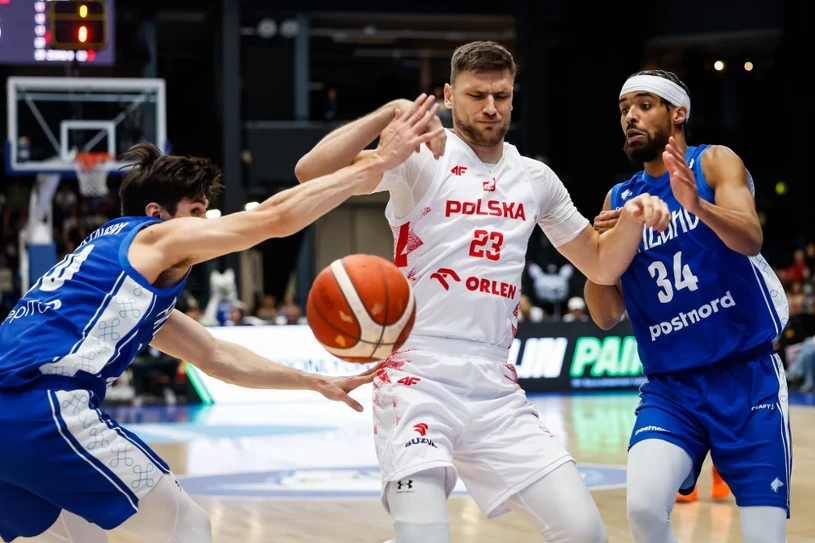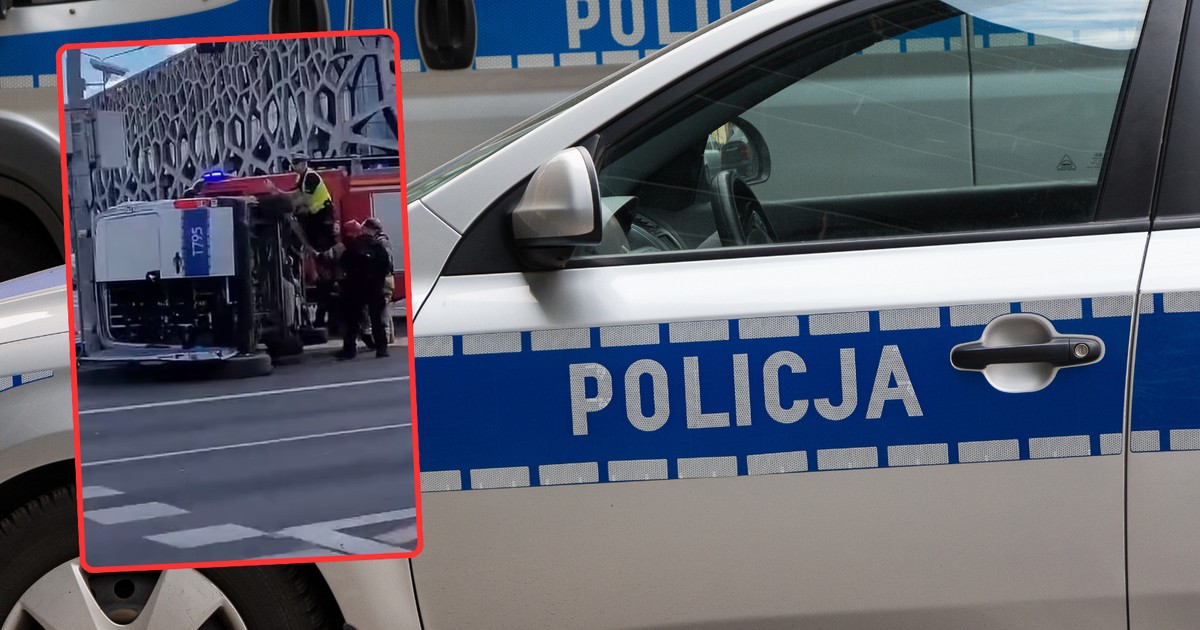Krystian Kamiński on page X [the fats in the text come from the editorial board]
On March 1, "Wall Street Journal" revealed circumstantial records of the draft peace agreement that the Russians presented during the peace talks in Istanbul during the negotiations launched on 29 March 2022. The paper dates from April 14, so it defines the final, or close to the final plan shape. citing a complete document, the American diary says Moscow demanded from Ukraine:
– a declaration of permanent neutrality, that is not entering NATO, but besides not accepting any weapons from the west. Russia, on the another hand, agreed to the integration of Ukraine into the European Union;
– Remaining under the control of Moscow, The Ukrainians were even prepared to frost this condition for 99 years. The another areas occupied by the Russians were to stay under their control on a temporary basis until his position was resolved in direct talks between Vladimir Putin and Volodymyr Zelenski;
– official position for Russian language in Ukrainewhich was rejected from the scene by the Ukrainians;
– security guarantees for Ukraine the US, France, large Britain, China and Russia were to give. The State-Guarantees would be obliged to "pronounce treaties and global agreements incompatible with Ukraine's continued neutrality", including any promises of bilateral military assistance. A formal treaty was to be concluded on the guarantee, as opposed to the 1994 Budapest Memorandum, which had no Treaty power;
– Ukraine insisted that Turkey be among the guarantorsa. Russia wanted to establish Belarus in this role. How crucial that no of the parties, including Kiev, saw Poland as a guarantor. Let us stress that this happened during the period during which Poland was the leading arms donor for Ukraine and a stimulant of specified activities among Western countries, a loud herrold of radically anti-Russian course;
– International safety guarantees would not apply to Crimea and Sevastopolwhich, on the another hand, means that the formal position of the remainder of Ukraine's areas occupied by the Russians was in the game;
– Russia besides wanted the common repeal of all sanctions and the withdrawal of Kiev from the complaint by representatives of the Russian civilian and military authorities before the global Court of Justice and designation of its jurisdiction in this area;
Moscow wanted The Ukraine Armed Forces were reduced to 85 1000 soldiers, 342 tanks and 519 artillery systems. The paper shows that during the negotiations, the Ukrainian side demanded 250,000 soldiers, 800 tanks and 1900 artillery systems. Russia wanted Ukrainian missiles to be restricted to 40 kilometres. Kiev refused to accept this condition by presenting parameters: 800 tanks, 1900 guns and up to 2,400 armored units of combat vehicles, as well as up to 245 1000 men in the armed forces.
In conclusion, the editors of the “Wall Street Journal” assessed that the content of the agreement proposed by the Russians “seems loosely based on the 1990 treaty that formed the united Germany under which the russian Union troops left East Germany provided that the country renounces atomic weapons and limits its army’s size.”
Interestingly, due to the fact that the description given by the U.S. diary coincides with what Vladimir Putin presented on 17 June 2023 to African leaders at the Moscow summit, at which leaders of South Africa, Egypt, the Comoros, Senegal, Zambia, Uganda and the Republic of Congo proposed their draft peace agreement between Moscow and Kiev. How much fun there was in Poland at the time for this initiative. And how many conventional and so many automatic references to “Russian propaganda”.
Putin then clarified in an interview the conditions for Ukrainian defence capabilities besides by limiting the number of National Guards to 15,000, armored units of combat vehicles to 1029, rocket artillery systems to 96, anti-tank guns to 96, large-caliber mortars to 147, portable air defence systems to 608 and combat support aircraft to 102. Russian leader claimed that the draft peace agreement consisted of 18 points and it was Kiev who rejected them. In February, Kremlin spokesperson Dmitri Pieskov claimed that the then UK Prime Minister Boris Johnson had contributed to this by encouraging Ukrainians to proceed the fight. That's what the Wall Street diary wrote. The same, commenting on Putin's interview for Tucker Carlson, said Turkey's president Recep Tayyip Erdogan.
It is worth highlighting this aspect in Poland, where not so much Ukrainian propaganda as propaganda of our own politicians and media, copying the communicative of the first 1 voluntarily, assured Polish citizens that the Ukrainians would not quit a button, due to the fact that why, if a complete triumph is only a substance of time. Meanwhile, the Ukrainians were ready to at least talk about specified distant concessions, which reflects their assessment of the situation at the time. "Wall Street Journal" even claims that the Ukrainian authorities were 1 step distant from signing under the above conditions. erstwhile again, in time, When Volodymyr Zelenski's administration judged the situation as so critical, Jarosław Kaczyński proposed the introduction of NATO troops under the UN mission flag to Ukraine.
The talks leading to Istanbul began on 28 February in Homl, Belarus, where the Ukrainian delegation arrived by Polish helicopter, which shows that Ukrainian authorities did not feel assured in Kiev from the beginning. A full of respective circular of talks were held, including 2 in videoconferencing mode.
These talks, I believe, led the Ukrainian side seriously. The mediator was Turkey, a serious country, strong, with serious lefts on both sides, including as a guardian of the Black Sea Straits. A country whose importance for Russia and Ukraine has been confirmed by negotiated and enforced since July 2022, with its help, grain agreements. President Recep Tayyip Erdogan himself powerfully active in the negotiations, personally beginning their start in Istanbul, and straight executive function played in their arrangement of Ibrahim Kalin, Erdogan's trusted man, then his spokesman, and now head of the powerful National Intelligence Organization (MIT). What importance the Ukrainians gave Turkey was that they wanted to co-opt it as a guarantor of a possible peace agreement. Let's point out that Erdogan called for peace talks again at the end of February, which shows how different Turkish policy is from Polish. This should be taken into account by any abroad policy theorists, especially from the background of the Law and Justice, specified as Przemysław Żurowski a.k.a. Grajewski, who have considered Turkey for years as a strategical ally in Russia's extremist policies of crushing.
As I've already noticed, information which they comment on besides illustrate the deficiency of political function of Poland, despite the tremendous commitment, measured by hundreds of tanks and another units of war equipment, millions of migrants admitted, billions of money spent, a border open to millions of tons of Ukrainian products. Right from the beginning. In addition The government of the Law and Justice Society grew on forms of direct engagement, soldiers in Ukraine. Meanwhile, alone Ukrainian authorities do not see any political function for us. I don't like colloquialism in writing about serious matters, I don't like exaggeration either, but in summarising our policy for the last 2 years, 1 can get the impression that it was a "very naive" policy (you can check the synonym).
Many Polish commentators present stress that Ukraine rightly rejected the peace agreement, due to the fact that since March 2022 it managed to regain control of the areas of the Chernihov, Cherkovsky and Kherson circuits, then occupied by Russia. It's actual that The game is not over, and the situation on the front is becoming increasingly unfavourable to Ukrainians.
These commentators besides argue that the guarantees contained in the agreement would be worth as much as the paper on which they were written, and Russia would have utilized the minute of the "prick" to rapidly reconstruct the possible and presume the attack already in a planned manner appropriate to Ukrainian forces and morale, alternatively than well below their level, as in February 2022. First, if the revelations of the American journal, and earlier Putin and Erdogan, are true, the guarantees were to be of a Treaty nature. The guarantors could not neglect to fulfil them without consequences for their political and military credibility.
Secondly, Ukraine already exists thanks to Western support. Without its material and financial support, support in the form of a satellite-based combat field awareness system, without strategical shield in the form of Western atomic arsenals, Ukraine would have lost this war a long time ago. In a geopolitical sense, Ukraine is already a carrot of the West, entirely from it, or actually a subsidiary of the US. And they have a immense influence, over time, on what political solution the Ukrainians will get on paper at the conversation table. Are we convinced that it will be importantly more generous for Ukraine than the conditions of March 2022 in view of Donald Trump's likely return to the seat of president of the United States?
Third, yet Ukraine has regained any territorial scope at the price of gargantuan human and material losses. The erstwhile are measured not only by military and civilian casualties of armed action, but besides by a large stream of emigration which reduced the population of Ukraine to little than 30 million. due to the material ruin, these migrants do not have anything to go back to for a while. Further war reduces their chances of coming back. So who needs a break more? Russia already switching to a war economy, or a ruined Ukraine and the West, which, as I wrote for 2 weeks, inactive has not been able to activate the industrial possible specified as Russia? To whom, then, is this war most beneficial, and to whom is much more failure or risk? For the time being, it is only by asking specified questions that Polish politics and media are accused. With Poland is already 1 of the last countries with specified political correctness.
PEACE AGREEMENT IN STAMBULA: RUSSIAN CONDITIONS AND UKRAIN DECISION
On 1 March the "Wall Street Journal" revealed concrete provisions of the draft peace agreement that the Russians presented during the peace talks in Istanbul during the negotiations launched on 29 March 2022... pic.twitter.com/TVLH8Njdc5

